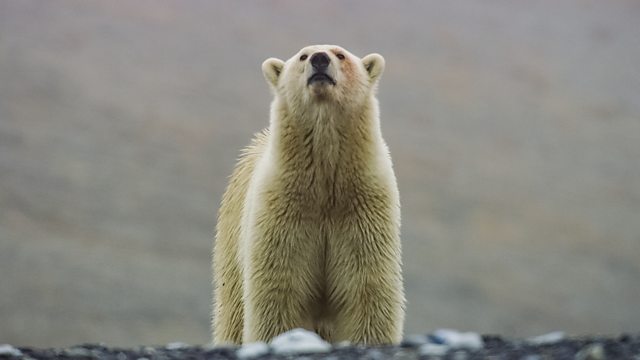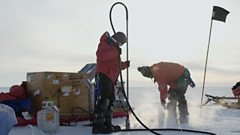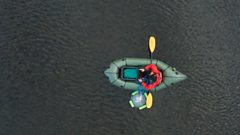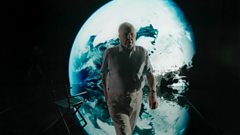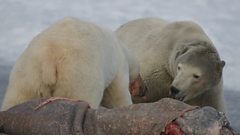Our Frozen Planet
Our frozen planet is changing. We meet the scientists dedicating their lives to understanding what these changes mean for animals, people and the world as a whole.
Our frozen planet is changing. In this final episode, we meet the scientists and people dedicating their lives to understanding what these changes mean, not just for the animals and people who live there, but for the world as a whole.
Our journey begins in the Arctic, where every summer huge quantities of ice calve from the edges of Greenland’s melting glaciers. On top of the ice cap itself, glaciologist Alun Hubbard descends into a moulin to try to understand the mechanisms that are driving this historic loss of ice.
Elsewhere in the Arctic, it’s not just land ice that is disappearing. In the Gulf of St Lawrence, Canada, biologists are trying to find out how the loss of sea ice will impact the lives of baby harps. In Arctic Russia, with the loss of summer sea ice, more and more polar bears are arriving on the island of Wrangel. Here, a local ranger and scientists are braving the hungry bears to assess their future survival.
Loss of sea ice impacts not just wildlife but people too. In the remote community of Qaanaaq, Greenland, local Inuit hunters are finding the ice too dangerous to travel and hunt on, risking their traditional way of life. And these changes happening in the Arctic have the potential to affect people far beyond. On Alaska’s open tundra, bubbling lakes hint at the gases being released from the previously frozen soil, including the potent greenhouse gas methane.
There is one place where the full scale of a melting Arctic can be best witnessed - from space. Based in the International Space Station, astronaut Jessica Meir looks down at forest fires across Europe and reflects how our changing weather patterns are interconnected.
Rapid ice loss is also happening across the high mountains of the planet’s continents. Glaciologist Hamish Pritchard uses a sophisticated helicopter-strung radar system to try to quantify how much ice is left in the previously uncharted glaciers of the Himalayas. It’s important as, downstream, some 1.2 billion people rely on glacial meltwater as their primary source of fresh water.
Finally, in Antarctica, we meet Bill Fraser, who has dedicated 45 years of his life to studying the Adelie penguin. Over this period, he has witnessed changes in weather conditions and the extinction of entire colonies. These ‘canaries in the coal mine’ are a sign that all is not well, even in the remotest place on earth. And changes here have the potential to affect all of us, so an international group of scientists is on an urgent mission to assess the stability of a huge body of ice known as the Thwaites ice shelf. If this plug of ice melts and slips into the ocean, it will raise global sea levels, impacting coastal communities across the planet.
The unprecedented changes our scientists are witnessing may be profound, but there is hope that, through a combination of technology and willpower, there is still time to save what remains of our frozen planet.
Last on
More episodes
Previous
Next
You are at the last episode
Clips
-
![]()
Surveying the Thwaites Ice Shelf
Duration: 03:00
-
![]()
Tracking methane mega seeps in Alaska
Duration: 03:14
-
![]()
"We can do it... We must do it." Sir David Attenborough
Duration: 03:40
-
![]()
Bears are part of the landscape on Wrangel Island
Duration: 03:14
Music Played
-
![]()
John "Rabbit" Bundrick
Feather
Credits
| Role | Contributor |
|---|---|
| Presenter | David Attenborough |
| Producer | James Reed |
| Series Producer | Elizabeth White |
| Executive Producer | Mark Brownlow |
Download a FREE Open University poster and explore how animals adapt to life in the coldest environments
Visit the Open University website to download your digital poster.
